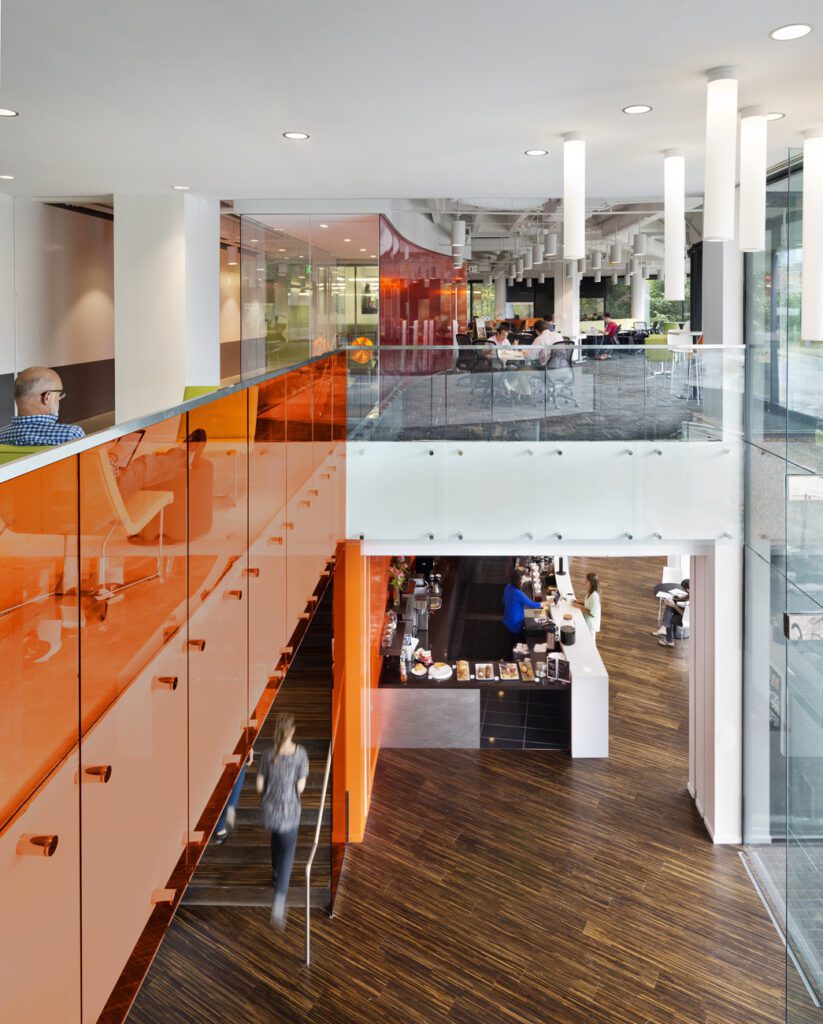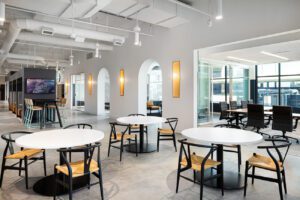Incubators help startups beat the odds.

About half of startup businesses don’t last five years, and 90% eventually fail, according to national statistics. But tech entrepreneurs in the Buckhead area can improve their chances at an incubator.
Most people launching tech startups have never gone through the process of developing technology, building a pitch deck, hiring an employee and finding a customer, says John Avery, the director of Georgia Tech’s tech incubator, the 41-year-old Advanced Technology Development Center. “Every time you make a mistake, it’s very costly.”
Incubators like ATDC provide flexible office space, resources, advice, education, expertise and connections to people who can offer key services and funding, all within a community of companies facing similar problems.

“Startups are about trying to figure out who they are and what they are to the world before they’re able to reach any kind of scale,” Avery says. Rather than smaller versions of big companies, “they’re evolutionarily different, a different species.”
Buckhead has a different species of incubator in the Atlanta Tech Village, which has grown to be the nation’s fourth-largest technology startup hub since David Cumming founded it in 2013.
Julie Pierre, the village’s director of community, says the hub combines the features of an incubator with an accelerator, where a community of similar-stage businesses can gain rapid access to talent, capital and ideas.
Unlike an accelerator, which brings a cohort of businesses through a program lasting several months then pushes them out, neither the village nor ATDC limits when a startup may enter or how long it may stay. The membership model used by the village and ATDC allows founders to keep full ownership of their businesses.
The community itself is crucial so founders can seek advice from people facing the same stresses.
ATDC is open to anyone in Georgia with a tech concept. For $25 per quarter, that person can join about 450 others in the Educate program for classes and coaching.
Companies with promise can apply for ATDC’s two-tier portfolio program that provides dedicated coaches and further resources. At its peak, the program charges a couple hundred dollars a month for services in four categories: access to investors, corporate connections, campus connections and grants.

The lower portfolio level, Accelerate, requires the founder to work fulltime for the business with at least one part-time employee, a viable product and a clear idea of the market. Accelerate has about 90 companies.
The higher portfolio level, Signature, has around 40 companies, each with four to 20 employees and products bringing in revenue.
Each year, approximately 10 companies graduate by showing sustainable sales growth, typically after three to four years in the portfolio. Avery says more than 90% of them remain viable five years after graduation.
They include fleet management company ThingTech and healthcare software company Gozio Health in Buckhead, and customer success platform UserIQ in Dunwoody.
Atlanta Tech Village charges a monthly fee for its three membership levels: $300 for a community membership that provides access to common spaces but not a fixed workplace, $425 for a reserved desk in an open space and $600 to $4,800 for furnished office space, based on the number of employees. The fee covers everything from workshops to pitch practice to sales discussions. About 300 businesses are current village members, and more than 1,000 businesses have lived at the village since 2013.
The proximity to other tech entrepreneurs is the key. “The quicker Atlanta has people rubbing shoulders and [creating a] true community around tech with Southern hospitality, and as long as we’re cool with sharing and helping each other, I think Atlanta can rise in the tech world really quickly,” says Blake Canterbury, CEO of village member Purposity.
Village graduates include two companies that topped billion dollar valuations this year: sales engagement platform SalesLoft, which also went through ATDC, and scheduling app Calendly.
The graduation conversation begins when a company has 40 to 60 employees, Pierre says.
Georgia Tech has a new Upper Westside space called Encore at The Interlock complex for ATDC grads. Those companies often go through rapid growth and hiring, and struggle to match the space they’ll need at the end of a lease with what they can afford at the start. Encore offers flexible suites that can be combined or separated to help companies stay in one place for a year or two.
It’s an experiment Avery thinks will help the tech startup industry, as will a new graduate-level membership ATDC is offering to keep such companies connected to the incubator community.
“It’s an extra gear of the transmission that helps us finish the story to get to that long-term sustainable company,” Avery says of Encore. “You can’t live there for long.”
Advanced Technology Development Center
atdc.org
@theatdc
Encore
rapidoffices.com/offices/encore
@rapidoffices
Atlanta Tech Village
atlantatechvillage.com
@atltechvillage
Jack-of-all-trades writer covering almost anything but beauty and fashion at Simply Buckhead; fond of flamingos and sloths.

















